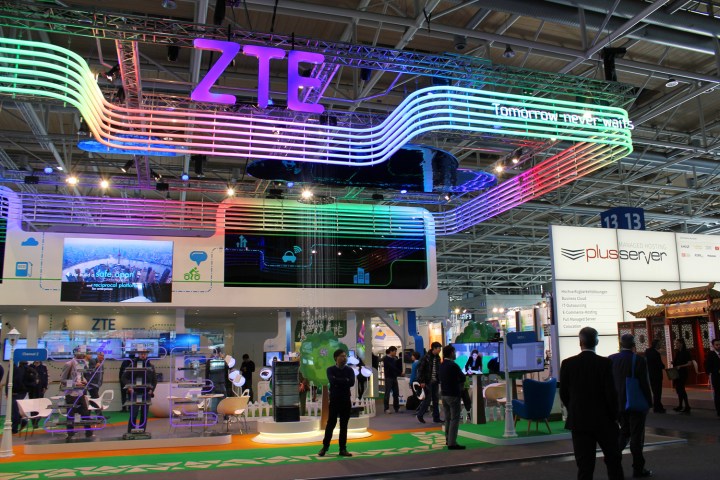
Updated on 3-22-2016 by Lulu Chang: U.S. softens its short-lived sanctions on ZTE
Back on March 7, the Commerce Department alleged that ZTE planned to establish a series of shell companies for the purpose of funneling telecom equipment to Iran. As part of the trade scheme, the company intended to resell equipment from its U.S. suppliers to Iran, a violation of Commerce Department trade provisions that prohibit the sale of U.S.-made technology to the country.
U.S. Treasury Secretary Jacob Lew raised the issue with Chinese officials last month, according to The Wall Street Journal, but seemingly to no avail. Under the sanctions, ZTE’s U.S. partners weren’t completely barred from continuing to furnish the company and its subsidiaries with components, but had to apply for an export license to continue doing so — an arduous proposition. “ZTE is highly concerned about recent media reports relating to a U.S. Department of Commerce investigation,” ZTE said in a related statement. “[ZTE] maintains constant communications with associated departments and is committed to fully address and resolve any concerns.”
Apparently, those concerns have since been resolved, thanks to “active, constructive discussions” between Shenzhen-based ZTE and the Commerce Department.
“As part of the effort to resolve the matter, and based upon binding commitments that ZTE has made to the U.S. government, Commerce expects this week to be able to provide temporary relief from some licensing requirements,” an official at the agency told Reuters. “The relief would be temporary in nature and would be maintained only if ZTE is abiding by its commitments to the U.S. Government,” the official added.
This comes as welcome news to ZTE, as the restrictions could have crippled the company’s supply chain in the near term; many of its high-end handsets sport chips from Qualcomm, Intel, IBM, and other U.S.-based component manufacturers. The Commerce Department’s ruling could push the company to source silicon from alternative, international suppliers such as Taiwain-based MediaTek, but some analysts say the shift could damage the brand’s perception among consumers. “There is American technology in everything,” a consultant for the Beijing-based Alliance Development Group, Chris DeAngelis, told The Wall Street Journal. “It’s a very, very strong stick.”
ZTE is the fourth-largest smartphone seller in the U.S. behind Apple, Samsung, and LG according to analytics firm IDC. The company’s net profit reached 3.78 billion yuan ($580 million) last year, an impressive hike of 43 percent.


